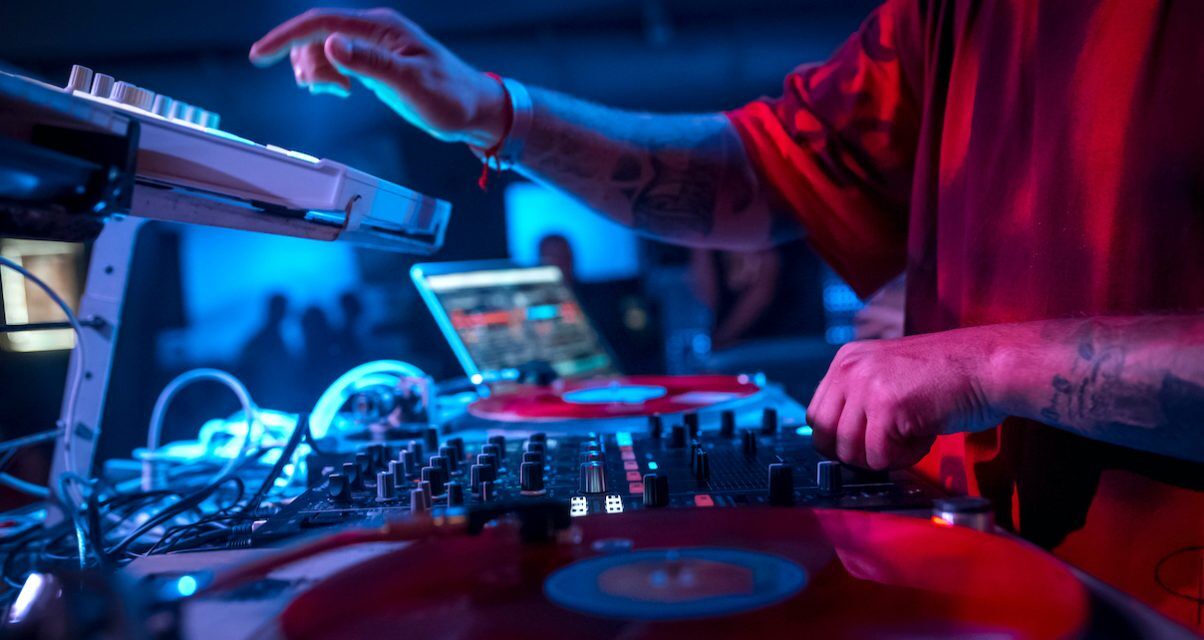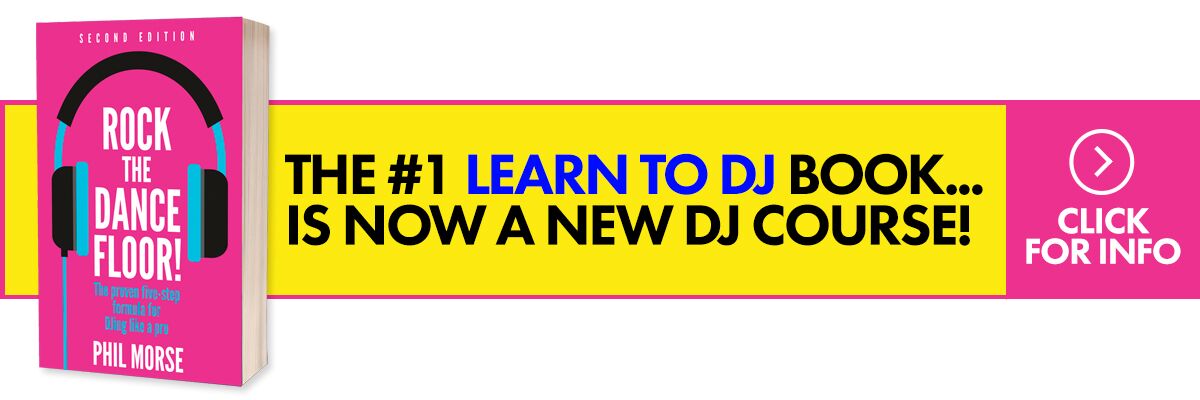There is a lot to the art of DJing. Of course, you need a passion for the music. You also need a “geeky” understanding of the gear (how it all works, what plugs into what, how to troubleshoot audio set-ups and so on).
It’s important to also understand the dynamics of performing, in the same way a band or a singer, an actor, or even a classroom teacher does – it’s very different to practising alone, and this ability to get a crowd onside and keep them there is definitely part of the art.
And like it or not, you need to know the basics of promoting yourself – understanding what the people who can give you gigs want, and making sure you provide it, so you get booked, and booked again.
But then there’s mixing – the part everyone else actually “sees”. The part many people believe is DJing. The part that – unless you’re an unreconstructed old-school mobile jock, or a mainstream radio DJ – you should definitely make a big part of your game.
But why mix? Why is it so important? In this article, I’ll look at eight reasons why it is always worth working on improving your mixing (alongside all those other skills, of course).
8 Reasons Why DJs Mix
- Mixing is part of our culture as DJs – The truth is that ever since the early hip hop DJs worked out how to extend the “middle eights” (the eight bars of music in the middle of funk records where the drummer showed off) by using two copies of the same record, ever since the early disco pioneers started re-editing disco tunes to make them easier to beatmix, mixing has been an integral part of DJing
- New tech makes mixing so much fun – It started with looping, then key lock, both of which arrived with CD DJing. Then of course laptop DJing arrived, with beatgrids, sync (beat and key), beat-locked effects and loops, multiple locked decks and all the rest. Mixing became both more powerful that ever, and more accessible to more people than ever, as everyone realised just how much fun you can have mixing nowadays!
- Mixing separates us from playlists and automix functions – Automix sucks, even the best varieties of it. Playlists at worst have actual gaps, at best – well, see what I said about automix! In these days where most people (and services) have access to most music, the ability to mix that music well is one of the big things that separates DJs from these solutions
- Mixing lets us react to the floor – Crowd not digging a tune? Mix it out properly, and they won’t even know you changed your mind. Crowd loving a breakdown? Double its length, or use some mixing tricks to make it even more awesome. You like the instrumental part of a song, but not the vocals? Use mixing and two copies to create your own dub remix, on the fly. Want to play an open-format set, crossing BPMs and tempos? Use transition techniques to make those changes smoothly, keeping the dancefloor busy. Mixing lets you do all of this
- It helps us to stand out as DJs – One of the few things separating DJs from each other once they have access to the same music is their skill in playing that music. Assuming the other DJs you are competing against have good musical taste, and understand the audiences in your area, and are getting things right in the other areas of DJing, then basically, the DJs who can get the mixing right will be the ones who stand out from the rest. So it’s worth trying to be one of those DJs
- It helps us play more adventurous tune selections – If you can mix well, you can play records lesser DJs couldn’t. DJing should (where possible) be about education as well as entertainment, but unless you can quickly, competently and confidently mix your music, you’ll be less likely to “get away” with playing more challenging records on the dancefloor. A deft mixing touch basically lets you be more daring
- It gives us something to do behind the decks! – Knowing what will add an extra 1, 2, 5% to the show at any given point relieves you from standing around waiting for the track to finish so you can blend in the next one. Mixing properly, far from annoying your crowd, adds a stardust that the crowd may not be able to articulate, but that will definitely separate you from other DJs. Looking busy – but actually doing stuff that makes a difference – is what high-level mixing skills bring to your game
- Ultimately, it puts the DJ in control – You are in charge, the records are just your tools. To move away from someone who just plays other people’s records, you need to “say” something with those tunes. Mixing is one of the biggest “levers” you have as a DJ to do that, to turn those records into your tools of the trade. Shorten, lengthen, remix, re-edit, shape the sound, control the crowd using volume, effects and so on… these are the things mixing can help you to achieve
How to work on your mixing
The best way to improve your mixing is to practise little and often, to always record your practice sessions and listen back to them before judging your efforts.
Do try to enjoy the journey, too. It’s important not to be too hard on yourself as you improve in your mixing – unlike, say, tune selection or music programming, mixing CAN be mastered. (The rest of it we are ALL still working on – there is always that undiscovered tune you should have found, or that track you played that killed the floor. It happens to everyone…)
More mixing tips: The 5 Skills To DJing Success #3: Techniques
Never let any fear of your mixing not being good enough stop you from getting or playing gigs. The six basic mixes we teach in our best-selling book on how to DJ, Rock The Dancefloor! (get a free PDF of the book when you join Digital DJ Tips) will get you through any gig – grab the book and you’ll find links to videos where I demonstrate them. From there, it’s just a case of adding to your skills over time.
And finally, if you’re really serious about improving your mixing, as the world’s biggest DJ school, we can help! Our best-selling course House Mixing Mastery would be a great next step if you want to learn to mix house like the pros. Or if you’d love to be able to “mix anything into anything”, like pro open-format DJs do, take a look at our popular Mixing Power Skills training course.


